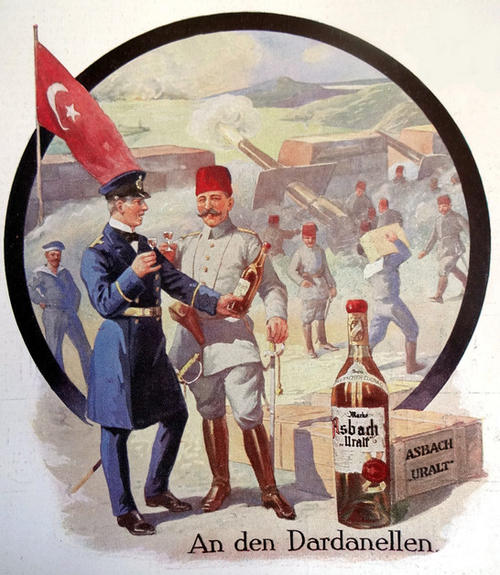German Soldiers in the Ottoman Empire, 1835-1918
Freie Universität Berlin
Principal Investigator: Professor Oliver Janz
Project Member: Dr Oliver Stein
In 1835 the Prussian Captain Helmuth von Moltke travelled to Turkey and became a military instructor of the Ottoman army. Over the next decades, other officers and military personnel charged with promoting the Europeanization of the Ottoman forces followed. During the First World War, a German expeditionary force (Asienkorps) of more than 20,000 soldiers were sent to support their Turkish allies in the Middle East and joined the small number of German officers in Turkish service (Militärmission). In these encounters, the members of the military missions as well as the soldiers of the Asienkorps were confronted with a different cultural sphere.
The post-doctoral project focused on German soldiers’ experiences of the Ottoman Empire. While the political and military history of German military missions and expeditions to Turkey had been relatively well studied, its cultural impact had been largely neglected. In engaging with the extensive scholarship and debates on ‘Orientalism,’ the project investigated how the soldier’s image of Turkey was influenced by oriental discourses, how it developed during the period of direct encounter and afterwards, and how it influenced the image of Turkey that was transferred to Germany.
This study employed a wide range of sources from personal testimonials (diaries, letters, reports, printed and non-printed memoirs), and files from the military and diplomatic authorities, to contemporary literature, newspapers and the internal army press and finally to visual sources such as photographs and pictures.
One particular point of enquiry involved the self-image of German soldiers who were sent to the Ottoman Empire. Identity and role conception was located on different levels, e.g. how the self-image embraced being a German, a European, an officer or a teacher, or even being a traveller in a foreign world. The project explored the evolution of these potential self-images through the intercultural contacts and their influence on perception and action. Those German soldiers who took part in the military mission to the Ottoman Empire went from being members of the German army to becoming Turkish soldiers. They were thus faced with a new set of loyalties and new schemas of friend and foe. The boundaries between ‘self’ and ‘other’ were similarly blurred and complicated during World War I, as members of the German Asienkorps found themselves involved in a holy Islamic war fighting side by side with Turks and Arabs against Europeans.
In most of the cross-cultural contact situations, the objective of the Asienkorps was to establish an effective collaboration with their Turkish partners. In practice, this posed particular challenges given the various differences in language and culture as well as in models of perception, communication and action. The research project at hand analysed the soldiers’ cross-cultural competences and examples of acculturation to Turkish norms and customs. It paid particular attention to the way in which this cross-cultural contact was shaped by the distinctive character of German military culture.
Finally, the soldiers’ remembrance of their experiences was an important aspect of research. Therefore, activities and publications of veterans’ organisations were also analysed. By studying numerous examples of post-war commemorative literature, the project asked how the distance of time and space have influenced perceptions, and whether they have changed them. To what degree did the authors commit themselves to a voluntary censorship in order to prove loyalty to their Turkish allies even after the war was over? What impact has the dispatch of German soldiers to the Ottoman Empire had on the perception of Turkey up to the present day?
